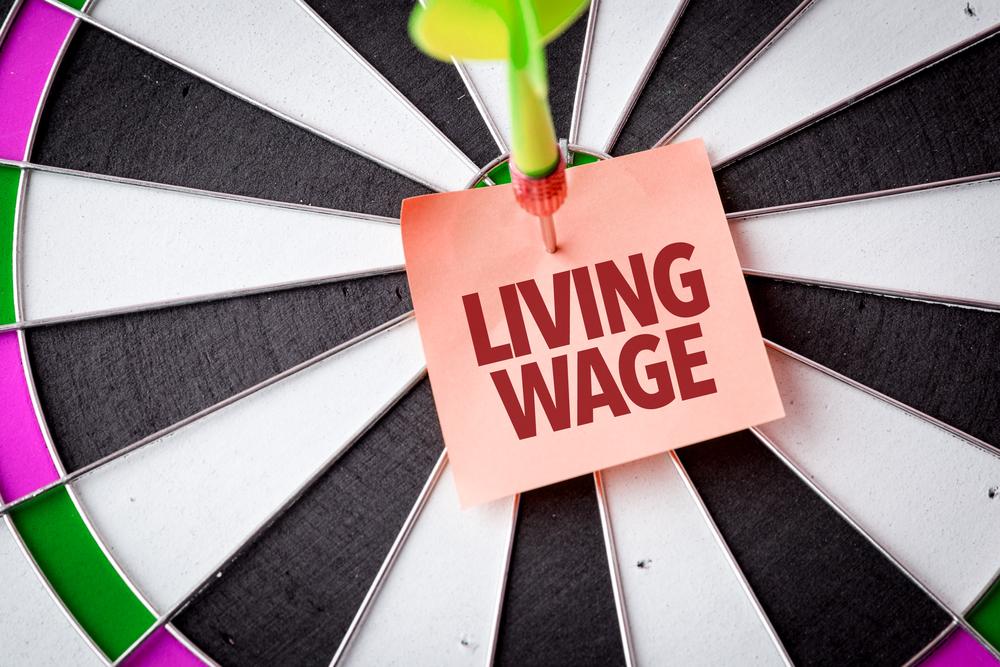MENU
Starting a Business
- Best Small Business Loans
- Best Business Internet Service
- Best Online Payroll Service
- Best Business Phone Systems
Our Top Picks
- OnPay Payroll Review
- ADP Payroll Review
- Ooma Office Review
- RingCentral Review
Our In-Depth Reviews
Finance
- Best Accounting Software
- Best Merchant Services Providers
- Best Credit Card Processors
- Best Mobile Credit Card Processors
Our Top Picks
- Clover Review
- Merchant One Review
- QuickBooks Online Review
- Xero Accounting Review
Our In-Depth Reviews
- Accounting
- Finances
- Financial Solutions
- Funding
Explore More
Human Resources
- Best Human Resources Outsourcing Services
- Best Time and Attendance Software
- Best PEO Services
- Best Business Employee Retirement Plans
Our Top Picks
- Bambee Review
- Rippling HR Software Review
- TriNet Review
- Gusto Payroll Review
Our In-Depth Reviews
- Employees
- HR Solutions
- Hiring
- Managing
Explore More
Marketing and Sales
- Best Text Message Marketing Services
- Best CRM Software
- Best Email Marketing Services
- Best Website Builders
Our Top Picks
- Textedly Review
- Salesforce Review
- EZ Texting Review
- Textline Review
Our In-Depth Reviews
Technology
- Best GPS Fleet Management Software
- Best POS Systems
- Best Employee Monitoring Software
- Best Document Management Software
Our Top Picks
- Verizon Connect Fleet GPS Review
- Zoom Review
- Samsara Review
- Zoho CRM Review
Our In-Depth Reviews
Business Basics
- 4 Simple Steps to Valuing Your Small Business
- How to Write a Business Growth Plan
- 12 Business Skills You Need to Master
- How to Start a One-Person Business
Our Top Picks
What Sole Proprietors Need to Know About Business Licenses

Table of Contents
Becoming a freelancer can be liberating. You have the freedom to set up shop anywhere you’d like and conduct business from the kitchen, your home office or a coffee shop, or at 35,000 feet. Freelancing has dramatically reshaped how we think about work and empowered individuals to pursue a living without the constraints of the traditional 9-to-5 workday.
A sole proprietorship – the default freelancer business structure – is an unincorporated business that one person owns and runs. However, just because your business blurs the traditional lines of the working world doesn’t mean you can ignore laws and regulations about business licenses and other matters.
In fact, there’s a good chance you have some municipal rules to follow if you conduct business – even as a sole proprietor.
If you’re the sole owner of an LLC, you’re not a sole proprietor. The LLC has a legal identity separate from you, while you’re personally responsible for your business debts and obligations if you’re a sole proprietor.
What sole proprietors need to know about business licenses
Freelancers and solopreneurs choose to run sole proprietorships for many reasons. They’re effortless to form and have minimal costs. But because a sole proprietorship is so uncomplicated, you may be lulled into a sense of complacency about rules and regulations.
Some sole proprietors assume they’re exempt from business license restrictions because they run a one-person operation or work online. This assumption is inaccurate and can lead to legal issues down the line.
Here are some crucial things for sole proprietors to know about business licenses.
When starting a business, you’ll need to decide on a legal structure. Businesses without paid employees can choose to be sole proprietorships, LLCs, S corporations or C corporations.
1. Sole proprietors may be required to obtain a business license.
Sole proprietors are responsible for finding out if they need a business license.
Federal, state, county and city governments issue business licenses. Even if the federal government doesn’t require you to get a business license, your state, county or city may have its own requirements. You will likely be required to get at least one business license or permit between federal, state, county and city requirements.
Generally speaking, regulated businesses are more likely to need business licenses at the federal and state levels. For example, if you make jewelry and sell it at festivals, you are less likely to need a state business license than if you open a restaurant. There’s little potential harm if a customer’s jewelry breaks prematurely. It’s much more severe if a restaurant has a food poisoning incident because it didn’t follow food-handling rules.
If a federal agency, commission, association or board regulates your industry, you’ll need a federal certificate in addition to a business license. These industries include:
- Television and radio broadcasting
- Fish and wildlife
- Agriculture
- Nuclear energy
- Transportation and logistics
- Aviation
- Firearms, ammunition and explosives
- Mining and drilling
- Commercial fishing
- Alcoholic beverages
- Maritime transportation
Sole proprietors should check federal, state, county and city requirements for licenses and permits.
If you’re just starting your sole proprietorship and haven’t set up credit card processing yet, consider using Venmo for Business. It’s easy to set up, and there’s no approval process.
2. Sole proprietors must understand various business license types.
Sole proprietors may need various licenses to operate legally. Some of these licenses include the following:
- Operational licenses: Most sole proprietors need an operational license at a minimum. This license is often required if the sole proprietor has a taxpayer identification number. In some instances, sole proprietors must maintain a state-issued license in addition to a general license if the government regulates its activities. You can get an operational license from the city or county where you conduct business.
- Occupational licenses: Sole proprietors involved in a trade or profession require an occupational license. This license ensures the proprietor has the legal authority to provide a particular service. Some examples of businesses that need an occupational license are tattoo shops, massage therapists, dietitians and childcare. These licenses can be obtained from state departments.
- Federal licenses: Sole proprietorships in federally regulated sectors require federal business licenses. Services such as ground transportation, investment advising and manufacturing firearms are federally regulated.
- State licenses: You must apply for a state license if you’re selling products or services regulated by the state. There are specialized state licenses for mechanics, lawyers, barbers, building contractors and more. Construction companies may need a state license. Additionally, businesses that must comply with state regulations, such as restaurants, also need a state license.
- Permits: Sole proprietors may also need various permits to operate. For example, they may need a DBA (doing business as) name, an assumed name under which they conduct business. They may also need permits from the health department if they’re involved in the sale or preparation of food. If you have a home-based business, you may need land and zoning permits. You may also need a fire permit (if you are dealing with flammable materials) or an environmental permit (for businesses that may cause environmental pollution), among others.
- Sales tax permits/licenses: Most states require a sales tax permit or license for most retail businesses. This means you may need a sales tax license to legally charge sales tax to your customers. If your county or city charges an additional sales tax, you may also need a local sales tax permit.
- Local licenses: Most businesses must obtain a local license. Local licenses often carry the smallest fees and are the easiest to obtain.
As a starting point, sole proprietors should contact their local Small Business Administration (SBA). The SBA operates numerous Small Business Development Centers that can advise on necessary licenses and how to get them.
3. Sole proprietors must understand where to apply for licenses and permits.
When it comes to business licenses, location matters. For example, if you live in an unincorporated area of a county, you will likely apply for a business license through the county instead of a city. If you work in a city, you’ll need to check the city’s website to see if it requires businesses to obtain permits.
When applying for licenses and permits, sole proprietors should work from the top down:
- Federal: Determine if your business is federally regulated and what that entails.
- State: Visit your state’s Secretary of State, commerce department or professional regulation website to determine your state requirements.
- County: Visit your county’s website to determine what’s required at the county level.
- City: Visit your city government’s website to ascertain the permits and licenses it requires.
Sole proprietors are part of the business world
It may be tempting to think your operation doesn’t need licenses and permits because you work from home. Federal, state and local governments will notice eventually. Tax revenue is critical for your community, and you could be subject to penalties for time spent operating without a license.
The freedom of running a sole proprietorship is wonderful, but it’s worth remembering that you’re still part of the business world, and it has some rules for you to follow.














